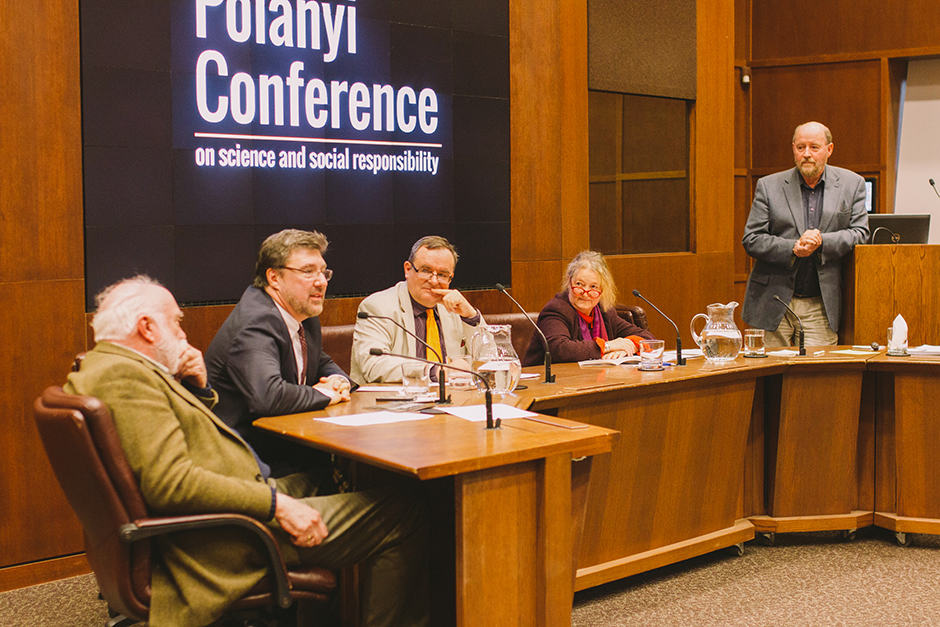Although the Cold War ended over more than a decade ago, nuclear weapons still present a threat to human life globally. At the Polanyi Conference on Science and Social Responsibility, held at the Munk School for Global Affairs on Saturday, November 15, experts on the subject gathered to stress the continued need for social responsibility in regard to weapons of mass destruction.
The conference is named after Dr. John C. Polanyi, a Nobel laureate and University of Toronto researcher, who has been a prominent member of the anti-nuclear movement since the 1950s. Polanyi, who served as a keynote speaker for the event, stressed the importance of public awareness around nuclear technology and scientific advances more generally at the conference.
When asked about how science students should keep ethics in mind while continuing their education, he responded, “[Science students] should read outside of science, and they do. The students I’ve met [at the conference] cover a broad range of subjects.”
“I think each individual is able to go and read some literature and some history and philosophy; that’s the way to being a human being rather than being a narrow scientist,” he adds.
Dr. M. V. Ramana, a physicist from Princeton University, was the second keynote speaker of the event. Ramana researches a broad range of subjects with a particular focus on the intersection between science and policy. Ramana’s keynote drew parallels between the previous generation’s challenge with nuclear weapons and the current generation’s challenge with climate change.
Following the keynotes, a panel discussion featuring experts on the subject of nuclear war was held. Dr. Tom Nichols, a professor from the US Naval War College, presented a contemporary perspective on nuclear weapons, while Dr. Robert Bothwell and Dr. Jack Cunningham — both professors in the Department of History from U of T — provided a historical perspective. Dr. Nancy Doubleday, a biologist and lawyer from McMaster University, drew attention to the globalization of the Arctic due to the Cold War. The analysis of nuclear technology from a variety of perspectives gave the audience a chance to understand a number of different viewpoints, and to further understand the call for disarmament.
The conference was organized by a small group of student volunteers who were led by Emma Hansen, a second-year student studying physics and philosophy. She was The Varsity’s associate science editor last year. Hansen believes that social responsibility remains an important topic for our generation.
“The problem is to ensure that research has applications that serve humanity instead of threatening its destruction,” she says, adding, “As… Polanyi said when accepting his Nobel Prize, ‘human dignity is better served by embracing knowledge,’ it is to that end that people with scientific training have a special role to play.”


